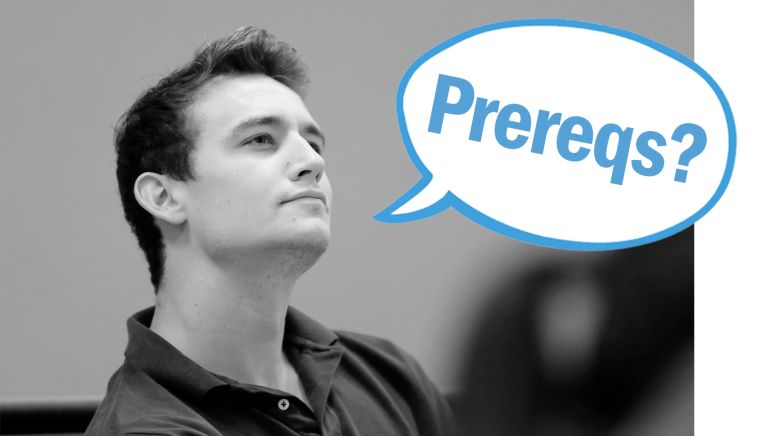Perspectives
MAC admissions: What prerequisite courses must I complete in order to join your program?

None. There are NO prerequisite courses for the UNC Master of Accounting Program. Everything you need to be successful in our program, in the accounting profession and in the business world, is built into our curriculum. Students who enter our program with a strong accounting/business mindset tap into this experience and “go deep” quickly. Students with a scientific or philosophical mindset put their superior research and communication skills to work on financial records and business processes. Regardless of your background, the UNC MAC is a robust, rigorous program.
We strongly believe that the diversity of thought that comes from assembling a wide variety of academic and professional backgrounds is a key reason why the UNC MAC Program is so successful at building strong business leaders. For this reason, we invite, encourage, and, ultimately, admit students who hold undergraduate degrees that are “close” to accounting/business — like business, economics, or finance — as well as those that are “far” from accounting/business — like math, history, English, or political science.
>> Learn why Business, Econ, Math, Science, and Liberal Arts majors make great accountants
Hear from an anthropology major who’s heading to a Big 4 accounting firm in San Francisco.
OK, but do I need an accounting degree, a business background, or prior work experience?
No, not at all. Our curriculum is designed to introduce students from all backgrounds to the accounting discipline. While students retain the unique skills and strengths developed during their undergraduate studies, they typically have fully adjusted to the “new” accounting curriculum after just a few months in the program. By the end of their time in the program and as they enter the accounting profession, it’s hard to separate the biologists from the business students; some of our most successful graduates originally majored in liberal arts or science-related disciplines.
Seriously, though…will I actually succeed — and get a job offer — if my undergrad degree is in chemistry or history or English?
You will succeed. In fact, many of the recruiters who hire our graduates actually seek out the unique qualities that students with non-business backgrounds carry with them into the program and, later, into the professional world. English majors often have excellent communication skills, which translates into excellent client-management and boardroom presentation skills. Chemistry students have mastered research methodology, which translates into keen insight and rigor when auditing financial records. And, history majors, as well as students with degrees in anthropology, political science, and other liberal-arts disciplines, tend to have a knack for deciphering, simplifying, and drawing connections between independent events, which translates into the fundamental approach to data analytics and financial statement analysis. If this isn’t enough to convince you, it should be noted that 98% of our students are employed three months after graduating, a figure that includes the biochemists, the historians, and the poets.
I’m interested!
Complete the fields below. Fields marked with “*” are required.
What if I do have an undergrad degree in accounting or already have my MBA?
In our online format, where there’s more flexibility in the scheduling, course transfers are available for incoming students who have taken accounting courses or who already hold an MBA degree. These transfers reduce the credits required — and, therefore, the cost — to complete the program. While we offer these transfers for our online students, we still maintain a healthy balance of backgrounds in the program.
In our on-campus format, all students complete 48 credits across a 12-month window. However, there’s still room for personalization. We offer concentrations in tax and auditing. We also offer numerous electives, which allow students who enter the program with previous business coursework an opportunity to expand their expertise. These electives cover a variety of topics, including law, governmental accounting, economics, negotiations, finance, leadership, and data analytics.
